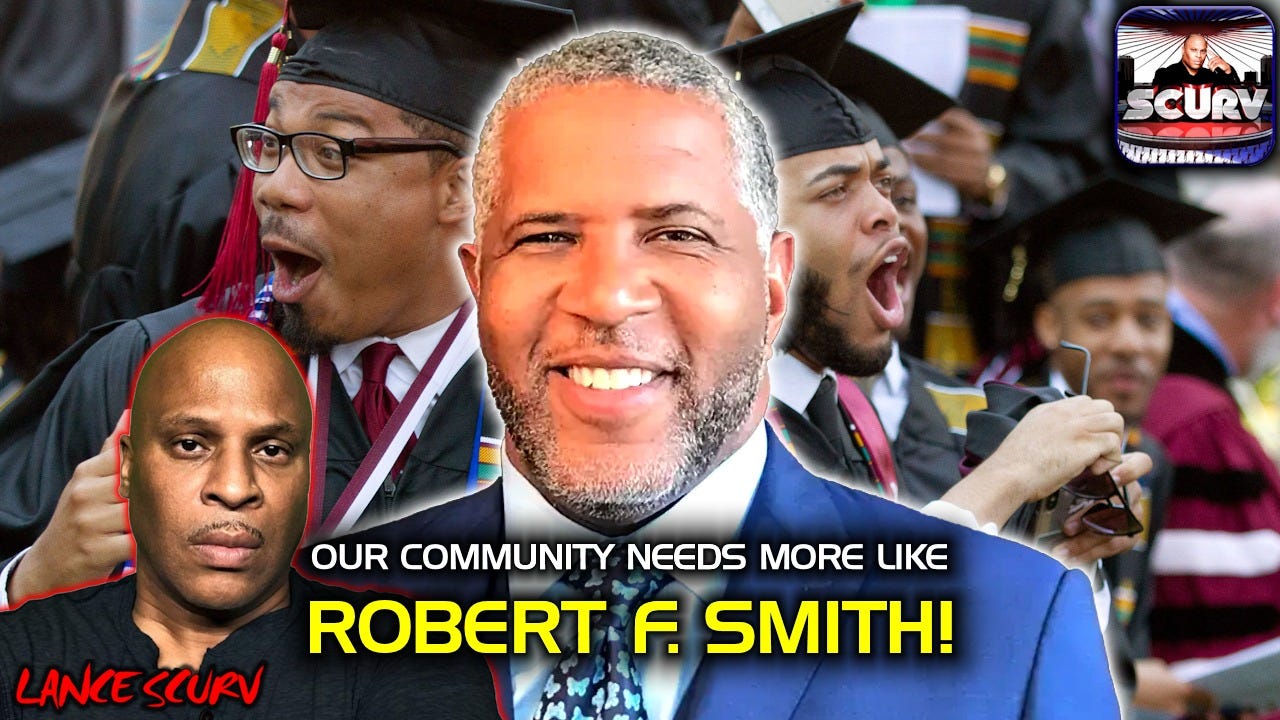WHEN LEGACY MEETS LIBERATION: THE DAY ROBERT F. SMITH CHANGED THE GAME AT MOREHOUSE...
It was a spring day in Atlanta—sunlight streaming across the caps and gowns of Morehouse College’s Class of 2019. Families beamed. Graduates exhaled. And then came a moment no one was prepared for.
Billionaire philanthropist Robert F. Smith, standing calm behind the podium, delivered a sentence that would echo across history:
“This is my class. And on behalf of my family, I’m eliminating their student loans.”
No metaphors. No riddles. Just freedom—spoken aloud.
It wasn’t a stunt. It wasn’t a press play for clout. It was a deliberate act of liberation. Nearly 400 young Black men—396, to be exact—were set free from the heavy chains of debt that too often follow students long after their degrees are framed and hung.
For many, this wasn’t just about money. It was about being seen. About being valued. About finally being able to plan a life without the looming shadow of loans. Homes could be bought. Businesses launched. Families supported. Dreams prioritized.
Who Is Robert F. Smith?
Smith didn’t emerge from a silver-spooned world. He was born in Denver, raised by two hardworking educators who emphasized academic excellence and cultural pride. He graduated with a degree in chemical engineering, started his career at Goodyear and Kraft, and later earned an MBA from Columbia. He eventually built Vista Equity Partners, a private equity firm that would grow into a tech titan managing over $100 billion in assets.
Yet with all that success, Smith never disconnected from his roots. If anything, he expanded them. And on that day at Morehouse, he did what most institutions have failed to do for generations: invest directly in Black potential.
More Than a Moment—A Movement
Smith’s gift totaled an estimated $34 million, covering not just the 2019 class’s student debt, but also debt held by their parents. Yes, he cleared parent PLUS loans too—a detail often overlooked but deeply impactful, especially in Black communities where elders often take on additional debt to help the next generation rise.
He didn’t stop there. To institutionalize the impact, Smith later launched the Student Freedom Initiative, committing $50 million to provide flexible funding alternatives to STEM students at HBCUs, reducing the need for predatory loans and giving students more financial autonomy over their futures.
He’s also been instrumental in preserving African-American cultural institutions. He donated $20 million to the National Museum of African American History and Culture in Washington, D.C.—at the time, the largest single private donation from an individual.
A Radical Blueprint for Black Philanthropy
Robert F. Smith’s actions represent more than generosity—they’re a radical restructuring of how wealth can be wielded. His message is unapologetically clear: true power is the ability to uplift others without needing validation from systems that weren’t built for us.
This wasn’t charity. This was strategy.
This wasn’t a one-time splash. It was a ripple effect—a call to action for other Black entrepreneurs, athletes, entertainers, and moguls to move with intention, to build legacies rooted in liberation, not just legacy wealth.
Because when you erase debt, you don’t just improve credit scores—you restore dignity.
And in 2019, on a campus steeped in Black excellence, one man didn’t just pay off student loans.
He paid forward a revolution.




This story is legendary. Because its the beginning.